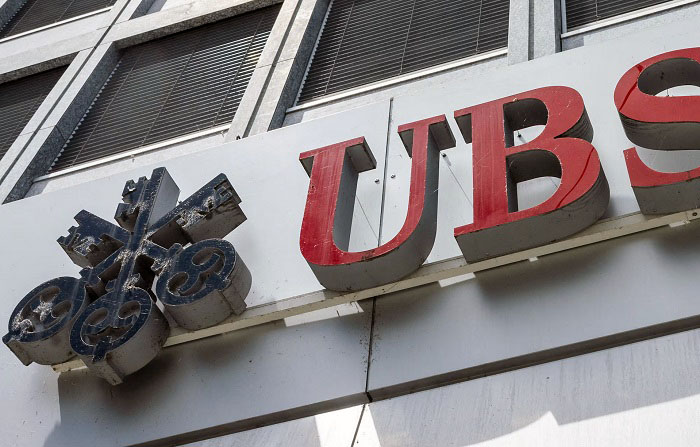UBS has initiated legal proceedings against the Bank of America on serious allegations of financial misconduct. The outcome of this court battle could spell doom for both banks and the financial industry. Investors, regulators, and industry watchers keenly await developments in the case.
In many ways, disputes between leading financial institutions highlight systemic issues. This case might disclose unethical banking practices, become a testimony to regulatory loopholes, or, down the road, reveal questionable market manipulations. Decisions at this level can carry immense implications for best practices, and legal precedence is set for banking at the global level.
It is essential to understand the key issues that lie at the heart of this lawsuit. The article, therefore, provides a detailed examination of the reasons behind the lawsuit, the allegations made, and the expected long-term impact on banking worldwide.
Why UBS Has Sued Bank of America
UBS has put forward strong claims against Bank of America, alleging deceptive financial practices that have caused significant harm. The lawsuit outlines several key accusations:
Market Manipulation: UBS accuses Bank of America of predatory trading techniques that put the latter on a canape pedestal in the financial markets. Such manipulations cause severe harm to free market competition, distort pricing, and mislead investors.
Breach of Contract: UBS argues that Bank of America did not perform contractual obligations to conclude these legally binding agreements. The failure to uphold these commitments invites suspicion and pervasive instability within the banking sector.
Investor Fraud: UBS charges Bank of America with knowingly misinterpreting essential financial data to mislead investors and business associates. False and misleading information other than that on the facades of public companies impairs the investment decisions of their consumers and causes significant loss.
Non-compliance: UBS accuses Bank of America of circumventing finance laws, thus committing improper and some yellow cash transactions. Financial entities are bound by stringent regulations, making compliance obligatory to see transparency and fairness in operations.
If UBS pursues these claims, it could push financial regulators to implement stricter compliance measures. Tighter regulations may significantly change the way large banks operate and bring an end to similar disputes forthwith.
The Companies at the Center of the Case
The case revolves around these companies, which have significant financial importance worldwide.
Bank of America
Bank of America is the world’s largest financial institution, serving millions of customers. The bank specializes in retail banking, investment management, and corporate finance solutions. Against this backdrop, Bank of America has faced numerous lawsuits involving mortgage fraud, insider trading, and other charges of unethical financial practices. These instances brought a serious issue on corporate governance and compliance placed upon the bank’s scrutiny.
UBS
UBS is a Swiss investment bank specializing in wealth management, worldwide asset services, and investment banking. It has endured prior challenges and maintains a strong global image. This expresses UBS’s resolution toward accountability for Bank of America for its alleged misconduct. UBS has pushed insistently for stricter financial regulations to give credence to the market.
This legal fight becomes more significant with increasing concerns for transparency, ethical banking, and corporate accountability. Financial analysts are watching closely to see how the trial will shape the future of the regulatory process and corporate compliance.
Breaking Down the Legal Arguments
For UBS to win this lawsuit, it must provide compelling evidence that Bank of America knowingly engaged in fraudulent or deceptive financial activities. The legal battle will center on these key questions:
- Did Bank of America intentionally mislead UBS about financial transactions? If so, the court could impose heavy penalties.
- Did Bank of America break financial laws or violate industry regulations? Regulatory breaches could lead to further investigations.
- How much financial damage did UBS suffer due to Bank of America’s actions? The extent of damages could determine the lawsuit’s financial repercussions.
Combating this, Bank of America is likely to argue that it acted in accordance with the law and that UBS interpreted the terms of the ordinary finance agreements incorrectly. Therefore, it could take years for the case actually to go to trial. However, if UBS is successful, Bank of America may be required to pay severe monetary damages, resulting in increased regulatory oversight and further, possibly irreparable harm to its reputation.
Legal experts believe that the case could provide precedence for disputes in this matter and future ones surrounding financial institutions.
How This Lawsuit Could Shake the Financial Industry
This lawsuit extends beyond just UBS and Bank of America. If UBS wins, the financial industry may undergo significant transformations. Some potential outcomes include:
1. Strict Banking Legislation
Regulators may institute more stringent compliance requirements, compelling banks to operate with greater openness and enhanced risk management. Increased supervision may raise operational costs for financial institutions but may restore investor confidence.
2. Investor Class Insecurity
Market confidence is usually shaken when major banks are accused of wrongdoing in lawsuits. If UBS is shown to have misbehaved, Bank of America may face a stock sell-off, with even greater scrutiny on other financial institutions. Investors may be more guarded when dealing with large financial institutions.
3. More Investigations
Regulators often initiate broader inquiries when a lawsuit exposes financial misconduct. Other major banks could soon find themselves under investigation for similar violations. A domino effect could lead to further legal challenges across the industry.
Bank of America’s Image Under Threat
There is no doubt that public trust supports the whole financial world. As much as Bank of America has rejected the allegations, brand equity may give way to corporate reputation and dent client trust and future business partnerships. With all these fears materializing, consumers and institutional investors may rethink their banking relationships.
What Happens Next?
As this lawsuit progresses, multiple possible scenarios may unfold:
- Protracted Court Proceedings: If the parties do not agree, the case can drag on for a few years, costing millions of dollars in legal fees. Lengthy court battles attract public attention and increase the chances of regulatory intervention.
- Financial Settlement: Perhaps Bank of America could decide to settle, wherein Bank of America would pay UBS for dropping the suit. A settlement could avert a prolonged, expensive court battle.
- Industry-Wide Impact: A UBS victory may lead to significant changes in banking regulations, forcing all financial institutions to revise their compliance strategies. A shift in regulatory policies could reshape how banks conduct business.
As the lawsuit progresses, financial analysts, investors, and regulators will continue tracking each new development closely. The legal community is also evaluating how this case might influence corporate litigation strategies in the future.
Conclusion
UBS has filed a lawsuit against Bank of America, alleging serious misconduct in which the latter took part. This might change banking regulations, investor confidence, and how global banks conduct business. These legal battles often open the floodgates toward wide-scale changes within an industry that change everything about corporate policy and market dynamics.
As this legal battle unfolds, financial experts will assess if UBS can substantiate its claim beyond a reasonable doubt. Depending on how this lawsuit proceeds, it might bring future banking disputes to light and tighten the noose regarding accountability in the banking industry. Investors, regulators, and corporate leaders are preparing heartily for possible shifts in the industry.
The global financial community is watching as UBS and Bank of America prepare for a high-stakes legal battle that may redefine corporate banking practice.
Its ruling will affect financial markets, corporate transparency, and global regulatory policies.


